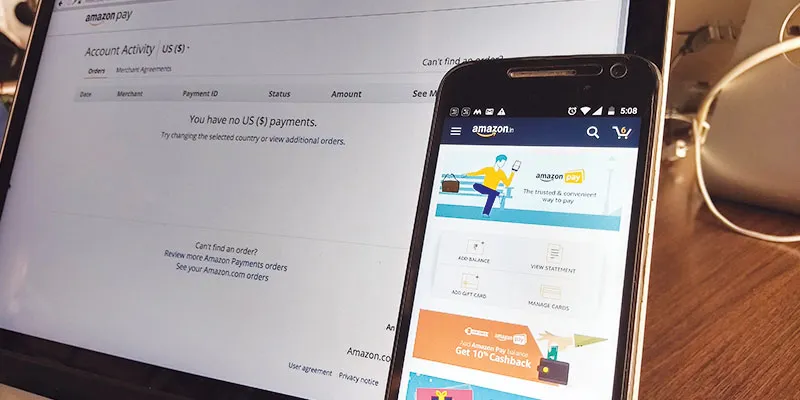Amazon gets approval for launching its mobile wallet
Amazon India has received approval from the Reserve Bank of India (RBI) to launch its wallet service in India.
Amazon India is among 84 companies that have received the Certificates of Authorisation under the Payment and Settlement Systems Act, 2007, for setting up and operating payment systems in India, according to a notification dated April 6 on the banking regulator's website. (You can access the list here.)

The licence to Amazon Online Distribution Services Private Limited is valid from 22 March 2017 to 31 March 2022. Media outlet Medianama.com was the first to report the development.
Having a payment system of their own works well for e-commerce firms as it eliminates the need for asking customers to share important card details such as CVV, which may not be acceptable to many. It also makes the process of refunds easy. For instance, for purchases made on Flipkart using PhonePe, refunds are deposited in the PhonePe wallet. The process work the same way for Snapdeal’s Freecharge or Alibaba’s Alipay.
Speaking to the media, Sriram Jagannathan, Vice President of Payments at Amazon India, said,
“We are pleased to receive our PPI licence from the RBI. Our focus is on providing customers a convenient and trusted cashless payments experience. The RBI is in the process of finalising the guidelines for PPIs. We look forward to seeing a continuation of the low-limit wallet dispensation with simplified KYC (know your customer) norms and authentication. This will allow us to help customers adopt digital payments at scale and thereby contribute towards making India a less-cash economy.”
The RBI is now reportedly trying to bring interoperability to wallets by allowing them on to the Unified Payments Interface (UPI). But no specific directions have come from it yet.
According to moneycontrol.com, Amazon's partnership with Qwikcilver is likely to continue even as it launches its own wallet through Amazon Pay in India. Amazon India has invested about $20 million in Qwikcilver as a strategic investor.
Last month, the RBI introduced new norms for wallet players, which the industry seems to be bucking up to. Under the new KYC norms, wallet companies are required to convert existing wallets that are without KYC to full KYC-compliant wallets within a period of 60 days from the date of issue. All the wallets have to comply with these norms before June 30, failing which no further credit will be allowed in these wallets.
In the cash extensive wallet and PPI business, Amazon does seem to have some edge over other players given its money muscle. However, it will be interesting to see how the company converts this opportunity into a profitable business.







